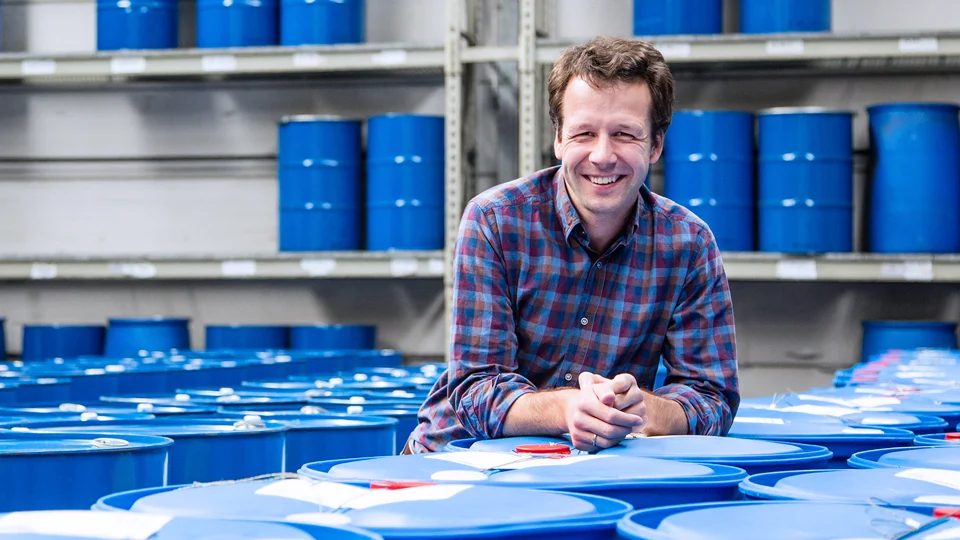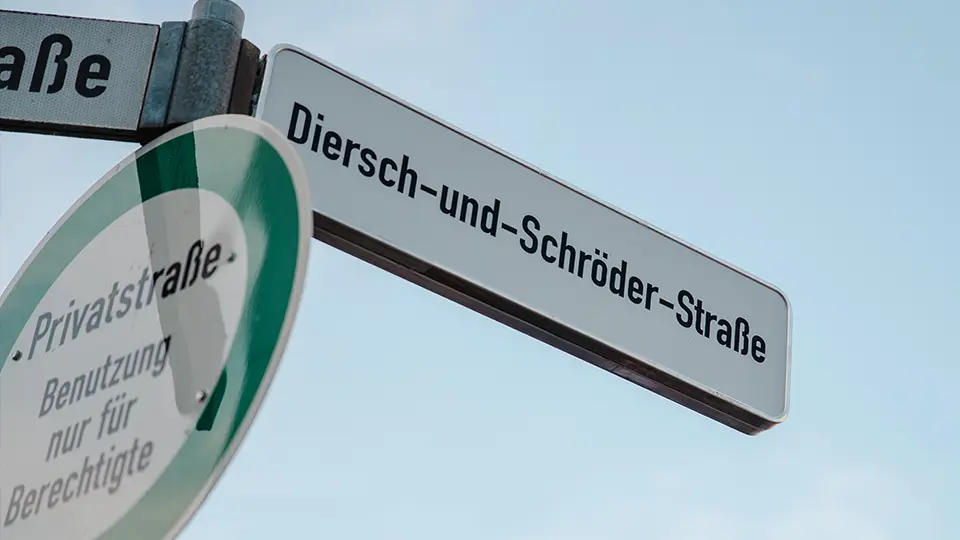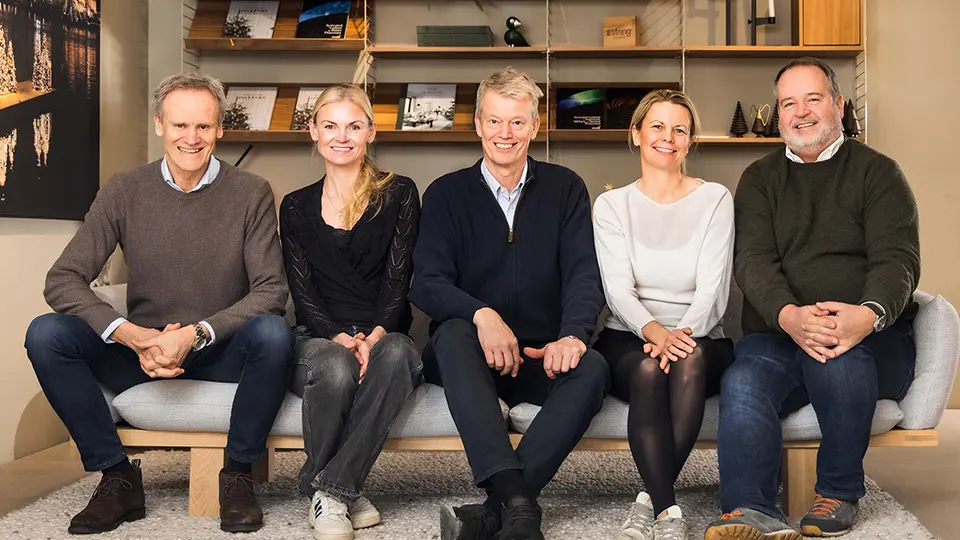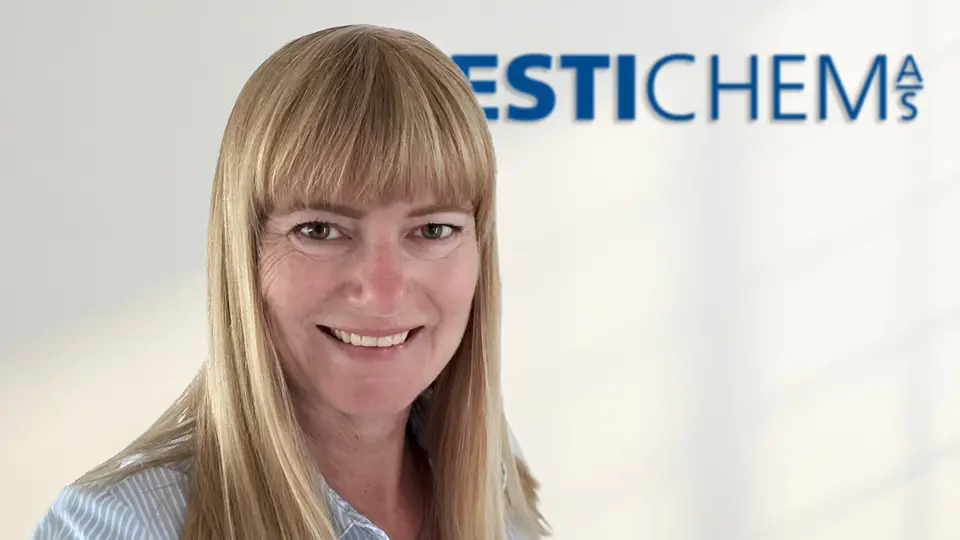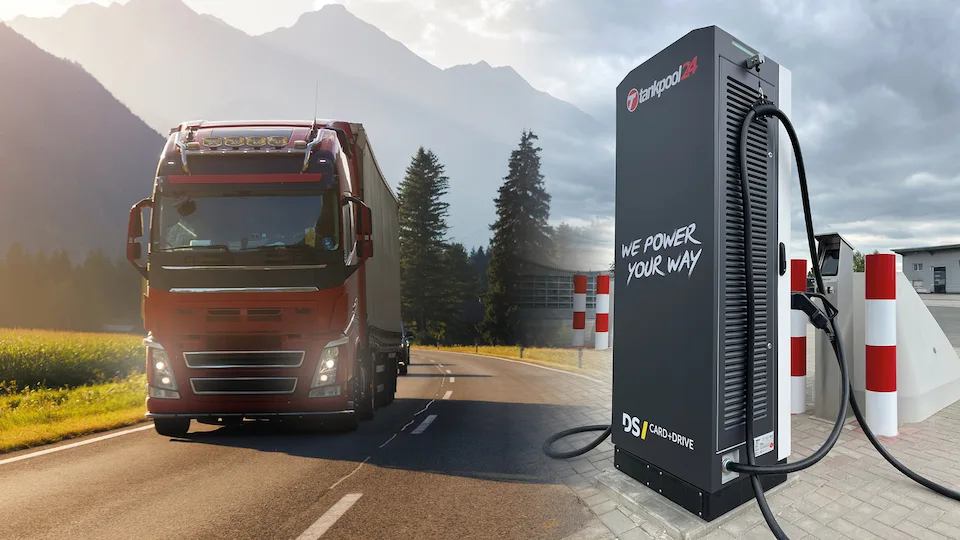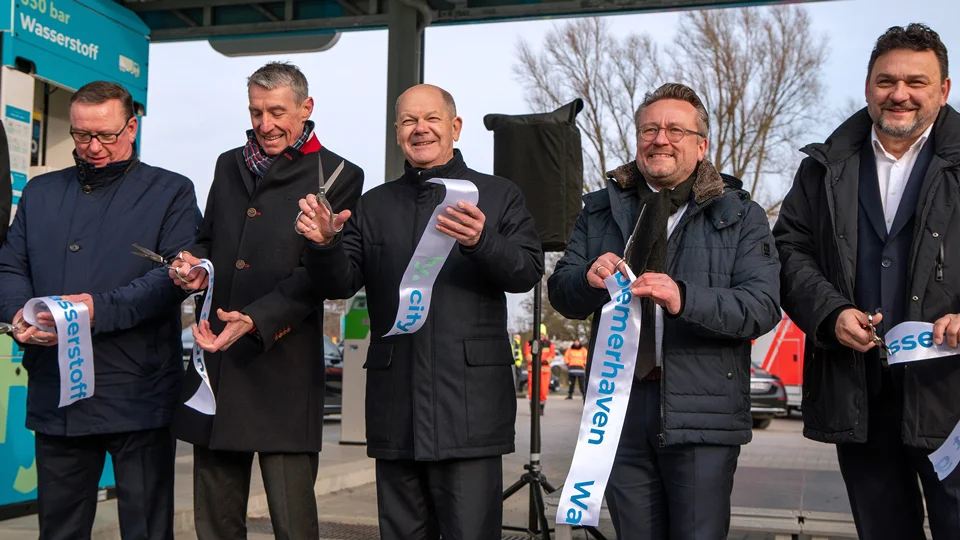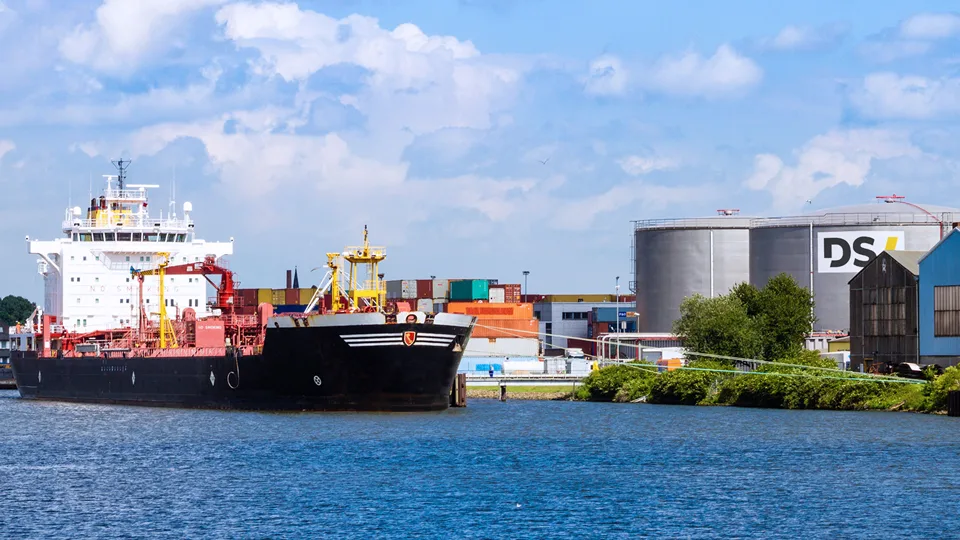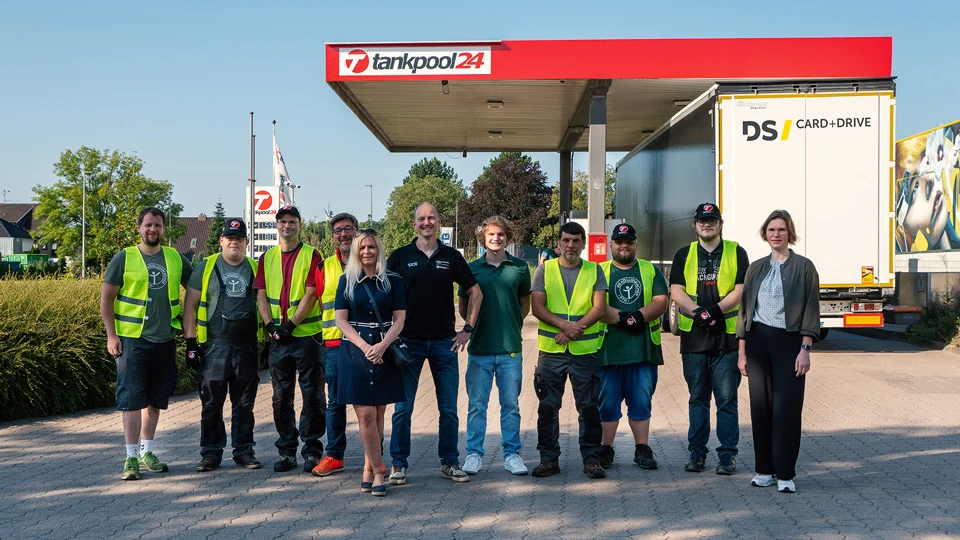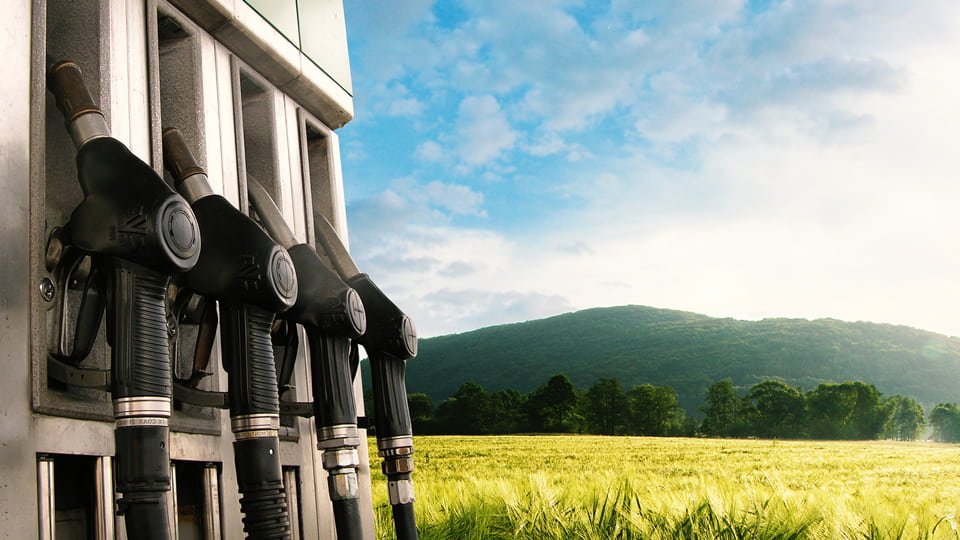Johannes von Cossel has been the Managing Director of Additiv-Chemie Luers GmbH & Co. KG (ACL for short), a subsidiary of the DS Group, for four years. The Delmenhorst-based chemical company specializes in the production of additives, package solutions, and specialty products for metalworking. In the interview, we discussed strategies for positioning in a specialized niche and the importance of sustainable products.
The chemical industry in Germany has recently faced various challenges. Among other things, the sector is suffering from high energy prices, which are negatively impacting production. Many companies have had to accept revenue losses and cut back on investments. Large companies like Evonik have significantly reduced their workforce. Despite these circumstances, Additiv-Chemie Luers successfully concluded the 2023 financial year. What factors contributed to this positive result?
The increased energy costs, amounting to about 200,000 to 250,000 euros in additional costs per year, are noticeable but are not comparable to the costs that large energy-intensive companies like BASF or Evonik have to bear. In addition to oil from DS and gas, we can also rely on cost-effective electricity from our own photovoltaic system.
We operate in a highly specialized market segment and are well aware of the influences and challenges. We face these challenges and focus on sales. We have successfully expanded our trading business. The products from our own production are particularly important for Additiv-Chemie Luers, as they are a significant revenue factor and guarantee employment in production. Therefore, we place great emphasis on their further development and distribution.
What strategies does Additiv-Chemie Luers pursue to successfully position itself in the specialized niche of the chemical industry?
Our strength lies in the specialty business. In contrast to the high-volume business in the energy sector, we specialize in smaller quantities with higher margins. A central element of our strategy is to take over distribution for other companies in Europe to generate additional revenue. A successful example of this is our partnership with a South African company. As a new distribution partner, we now distribute their product with an annual volume of over 200 tons in the European market. Our goal is to further expand this volume.
Furthermore, we are involved in development projects in cooperation with other companies. A current example is our defoamer project, which we started in 2018. We have been distributing the special defoamer in our market segment since the beginning of 2024. Defoamers are specialty products that are sold in smaller quantities and offer attractive margins.
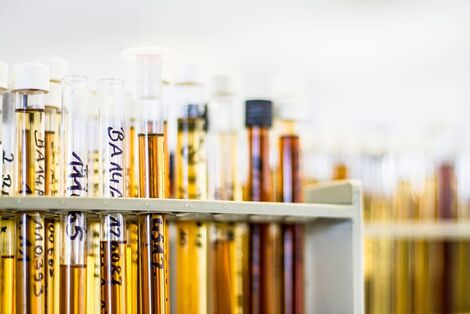
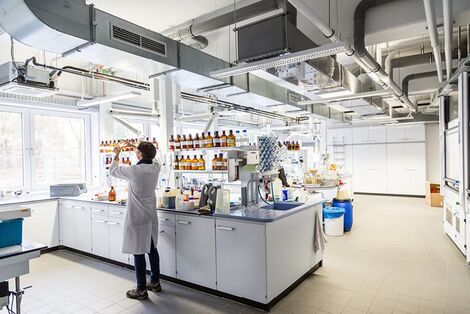
Additiv-Chemie Luers places great emphasis on sustainability. What concrete steps have you taken to make your products and processes more sustainable, and how do your customers respond to these initiatives?
We view sustainability as an integral part of every customer interaction. However, the discussion about sustainability ends with the question of what concrete measures and actions result from it. Many customers want to show that they are active in the area of sustainability, but the topic has not yet fully commercialized.
In petrochemistry, making products more sustainable is a complex challenge. One approach is using alternative synthetic raw materials like esters and vegetable oils instead of mineral oil. These alternatives are more environmentally friendly but also more expensive. The central question remains whether the market is ready to bear these additional costs – which is often not yet the case. Additionally, the definition of ‘sustainable’ varies greatly. For us, aspects such as biodegradability, solvent-free (VOC-free), product labeling, and mineral oil-free are paramount.
At our site, we are working intensively to make business processes more sustainable. This includes measures such as reducing paper consumption through increased digitalization, switching to green electricity and installing our own photovoltaic system, as well as optimizing our heating processes through technical improvements. We can also minimize steel consumption and thereby save CO2 by reducing the wall thickness of our barrels.
We consider sustainability as an integral part of our business. For us, aspects such as biodegradability, solvent-free, product labeling, and mineral oil-free are paramount.
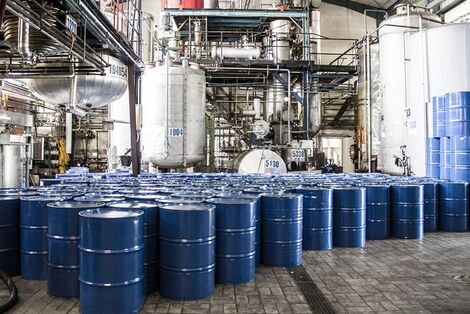
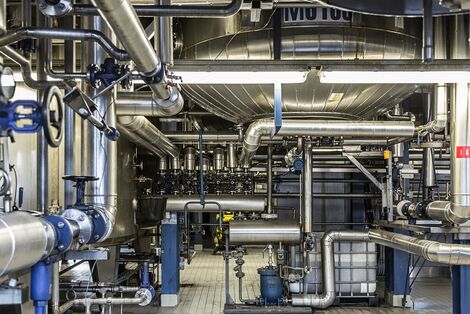
Are you planning any expansion, growth, or renovation measures?
In 2017, on DS’s advice, we bought the property next to and behind us. Now we have more than twice as much space available in Delmenhorst. We have submitted a BIMSCH application to the Trade Supervisory Office in Oldenburg to construct a warehouse here with potential production. A new, optimized truck circumnavigation of the buildings is also planned.
The expansion of storage areas is particularly important as our trading business has grown significantly in recent years and we need additional storage space. The necessary loan for these expansion plans has already been approved. We are currently in the approval phase and are waiting for the final consent from the Trade Supervisory Office.
This year, the DS Group expanded its chemical division by acquiring the Norwegian innovator Sparks AS. How do you evaluate this acquisition in the context of the DS Group and what potential do you see for future collaborations?
Sparks is a long-standing trading partner of our subsidiary Esti Chem. The company is led by two experienced colleagues who know the market and the peculiarities of the Scandinavian region, such as the climatic conditions, very well. Sparks currently focuses on supplying the Norwegian oil industry with environmentally friendly or biodegradable cleaning agents. A forward-looking project is the cleaning of oil platforms that need to be dismantled or decommissioned due to the decline in oil production. Esti Chem is already active in this area.
The Scandinavian market is characterized by a progressive attitude towards renewable raw materials. In collaboration with Sparks and Esti Chem, we see great potential for jointly developing new products and expanding into new sales territories. Furthermore, there is the possibility of further developing and marketing ‘Green Fuels’ such as HVO (Hydrotreated Vegetable Oil, biofuel from hydrogenated vegetable oil) together with the energy division of the DS Group.
We evaluate the acquisition of Sparks as very positive and see it as an excellent opportunity to further expand the DS Group’s business in the chemical sector and to benefit from the experiences and competencies of Sparks and Esti Chem.
In collaboration with Sparks and Esti Chem, we see great potential for developing new products and expanding into new sales territories. Furthermore, there is the possibility of further developing and marketing renewable products together with the energy division of the DS Group.
Are further acquisitions planned?
We continue to look for suitable smaller companies to drive our growth both organically and through acquisitions. With this strategy, we are expanding our business areas and strengthening our market position.
What role does Alpha Chemie’s production site in Freital play?
Alpha Chemie plays an important role in our production network. Although it is a small production facility with only 5 employees, it produces an impressive 800 tons of product per year (ACL produces a total of nearly 8,000 tons). Alpha Chemie is particularly valuable to us because it manufactures raw materials that Additiv-Chemie Luers needs in the field of corrosion protection and sells to the lubricant industry. Through this “backward integration,” we secure an independent supply of our own raw materials and thereby strengthen our market position.
The integration of Alpha Chemie into Additiv-Chemie Luers has developed positively and is of strategic importance to us. As a sign of our commitment and appreciation, we have built a new warehouse in Freital and are continuously modernizing and renewing the production facilities and infrastructure.
Visitors to Additiv-Chemie Luers immediately notice the warm and family-like atmosphere in the team. As the Managing Director, what common values do you associate with the DS Group?
I value the medium-sized business values that connect us with the DS Group. I particularly appreciate the Hanseatic mentality, which stands for reliability, honesty, and fairness.
Our team consists of around 50 employees, and I place great importance on personal contact. I regularly go to production, exchange ideas with team members, and maintain a presence in the facility. For me, it’s important that we work together as a team, support each other, and collectively work towards our goals. This team orientation and mutual respect are central values for me, which are upheld both at Additiv-Chemie Luers and throughout the entire DS Group.
The collaboration with the DS Group is very valuable and successful for us. We appreciate the support we receive in various areas, be it in strategic matters, accounting, human resources, or marketing. These synergies and the shared corporate culture make working with the DS Group very pleasant and productive for us.
